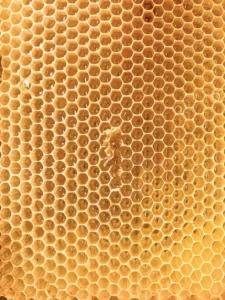Table of Contents
In this article, you will learn how to use Manuka honey for eczema and all your doubts about the benefits of Manuka honey for skin conditions will be resolved. Dealing with eczema can be a challenging and uncomfortable experience, as it often involves symptoms such as itching, inflammation, and discomfort. While there is no cure for eczema, there are various treatment options available to manage its symptoms. One natural product that has gained attention for its potential benefits in treating eczema is Manuka honey.
What is Eczema?
Eczema, also known as atopic dermatitis, is a chronic skin condition that causes patches of dry, itchy, and inflamed skin. The exact cause of eczema is unknown, but it is believed to be a combination of genetic and environmental factors. Eczema is commonly found in individuals with a family history of allergies or asthma. The condition is characterized by an overactive immune response, leading to inflammation and irritation of the skin.
The Properties of Manuka Honey
Manuka honey is a type of honey that originates from the nectar of the Manuka tree, which is native to Australia and New Zealand. Unlike regular honey, Manuka honey contains a higher concentration of certain compounds, including methylglyoxal (MGO). MGO is believed to have antimicrobial and anti-inflammatory properties, which may contribute to the potential benefits of Manuka honey for skin conditions like eczema.
Can Manuka Honey Help Treat Eczema?
While there is limited scientific evidence specifically supporting the use of Manuka honey for eczema, some studies have shown promising results. A small study conducted on the effects of Manuka honey on eczema found that applying Manuka honey to affected areas of the skin improved the symptoms and appearance of the lesions. However, more research is needed to confirm these findings and determine the optimal dosage and application method for using Manuka honey as a treatment for eczema.
How to Use Manuka Honey for Eczema
If you are considering using Manuka honey to alleviate your eczema symptoms, here are some tips on how to use it effectively:
-
Choose the Right Type of Manuka Honey: It is important to select Manuka honey with a high level of MGO, as this compound is believed to have the most therapeutic benefits. Look for a honey with a Unique Manuka Factor (UMF) rating of 10 or higher.
-
Perform a Patch Test: Before applying Manuka honey to your entire affected area, it is recommended to perform a patch test on a small area of your skin. This will help determine if you have any adverse reactions or allergies to the honey.
-
Cleanse the Skin: Before applying the honey, cleanse the affected area with a mild, fragrance-free cleanser and lukewarm water. Pat dry gently with a soft towel.
-
Apply the Honey: Using clean hands or a cotton swab, apply a thin layer of Manuka honey to the affected area. Gently massage the honey into the skin until it is fully absorbed.
-
Cover and Protect: For enhanced absorption and to prevent the honey from transferring onto clothing, you can cover the treated area with a clean bandage or gauze.
-
Repeat Regularly: To see the potential benefits of Manuka honey for eczema, it is recommended to apply it consistently for several weeks. Monitor your skin’s response and adjust the frequency of application accordingly.
Other Considerations and Precautions
While Manuka honey may be a natural treatment option for eczema, it is important to keep in mind the following considerations:
-
Consult with a Healthcare Provider: Before starting any new treatment, it is always advisable to consult with a healthcare provider, especially if you have any underlying medical conditions or are taking medications that may interact with the honey.
-
Avoid Allergic Reactions: If you have a known allergy to honey or bee products, it is best to avoid using Manuka honey for eczema. Additionally, if you experience any adverse reactions or worsening of symptoms after using the honey, discontinue use and seek medical advice.
-
Combine with Traditional Treatments: Manuka honey should not replace prescribed medications or treatments for eczema. It can be used as a complementary therapy alongside conventional treatments to potentially enhance their effectiveness.
-
Maintain Good Skincare Practices: In addition to using Manuka honey, it is important to maintain good skincare practices to manage eczema. This includes keeping the skin moisturized, avoiding triggers that worsen symptoms, and practicing gentle skincare routines.
Conclusion
While the use of Manuka honey for eczema shows promise, further research is needed to fully understand its effectiveness and optimal usage. If you are considering using Manuka honey as a natural treatment for eczema, it is important to consult with a healthcare provider and follow proper application techniques. Remember to monitor your skin’s response and discontinue use if any adverse reactions occur. With proper care and management, you can find relief from eczema and improve your skin’s overall health.



